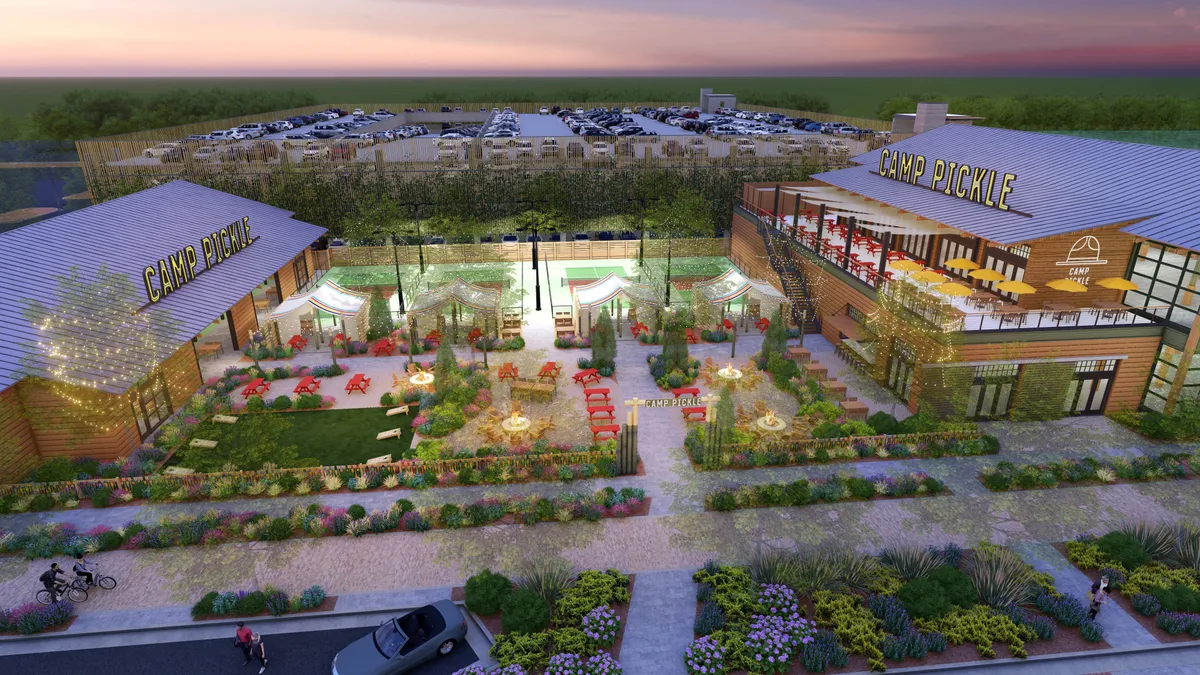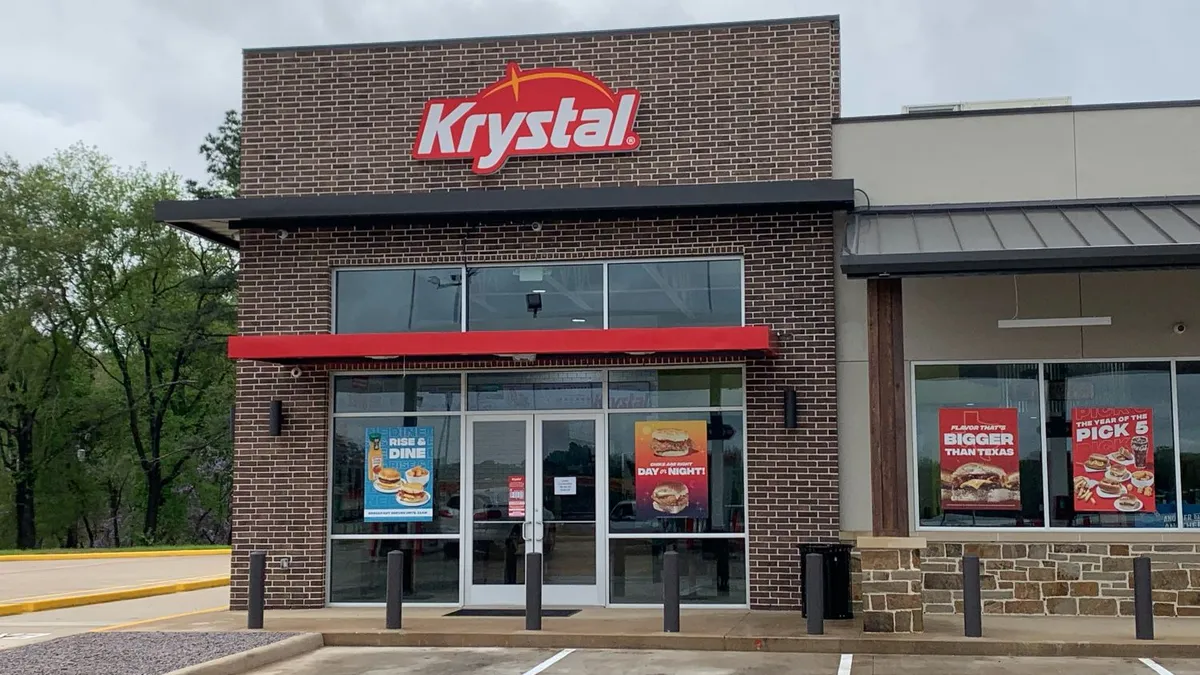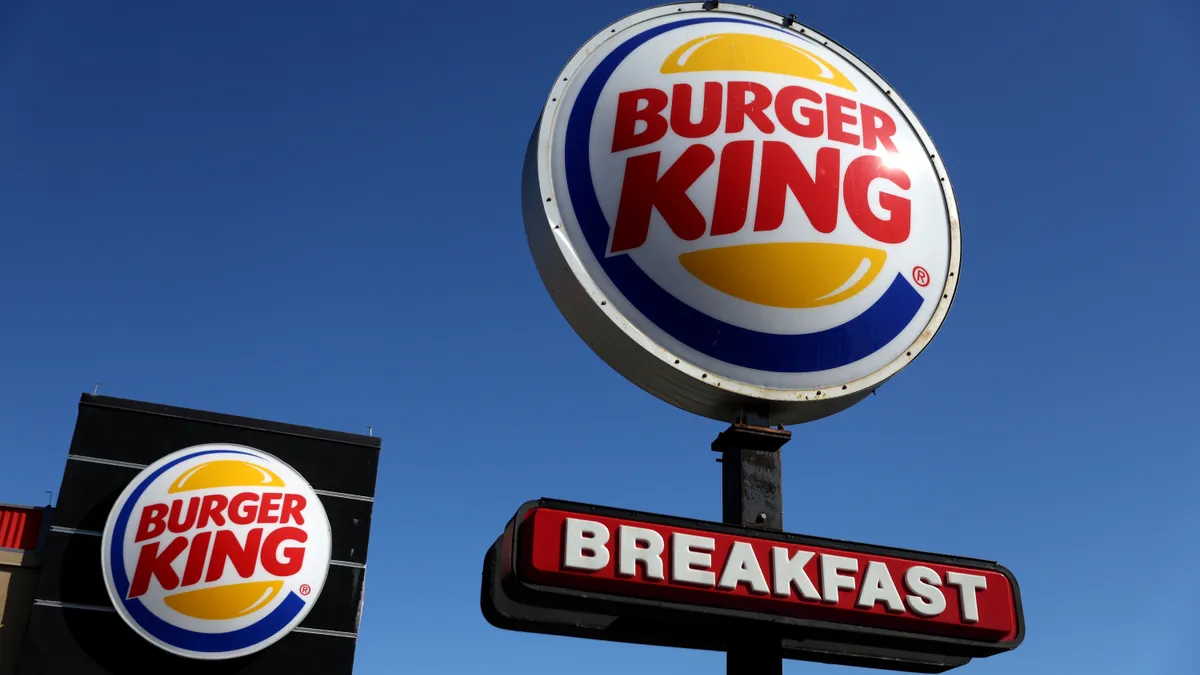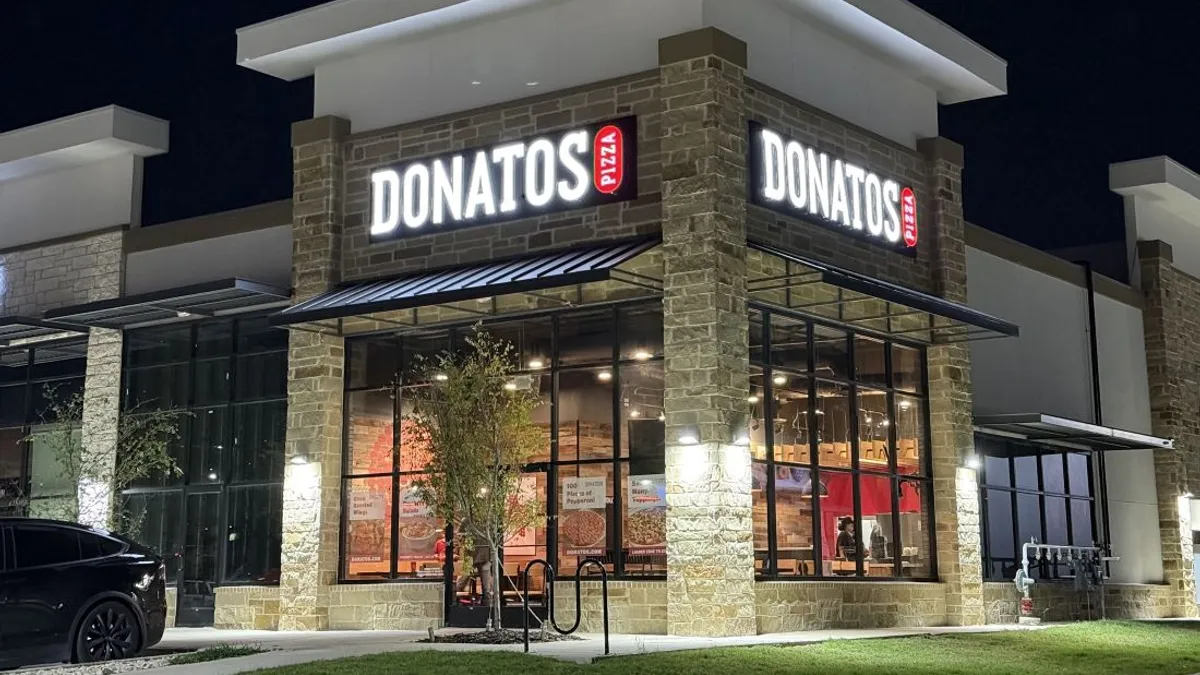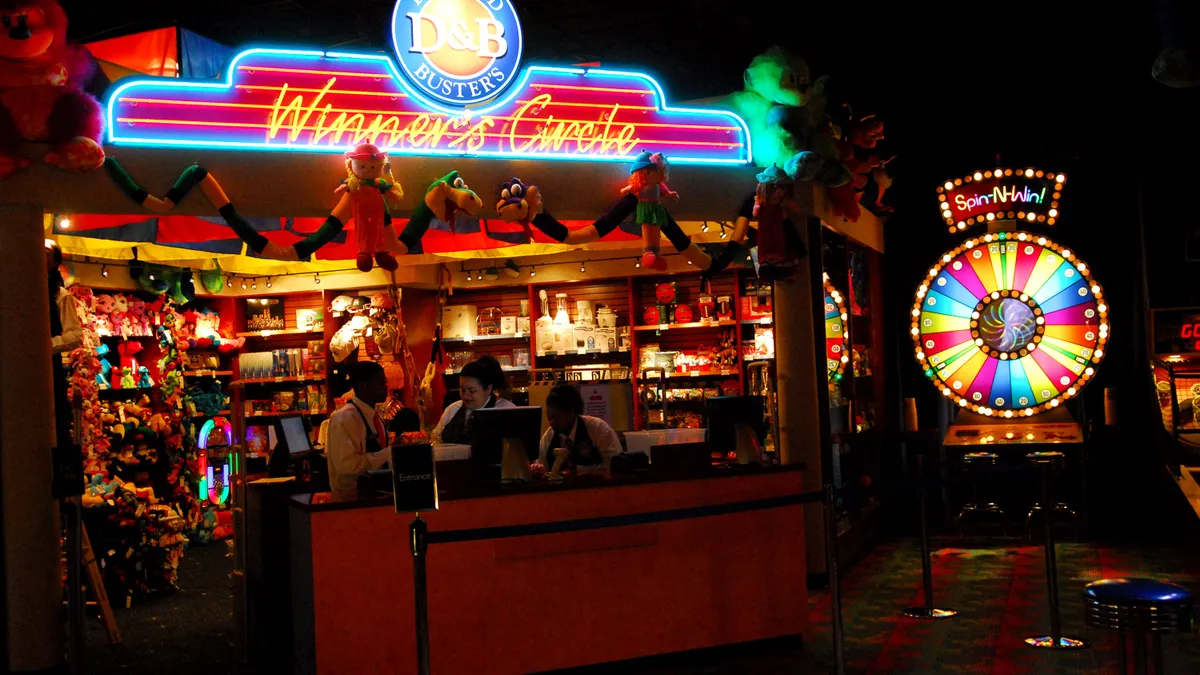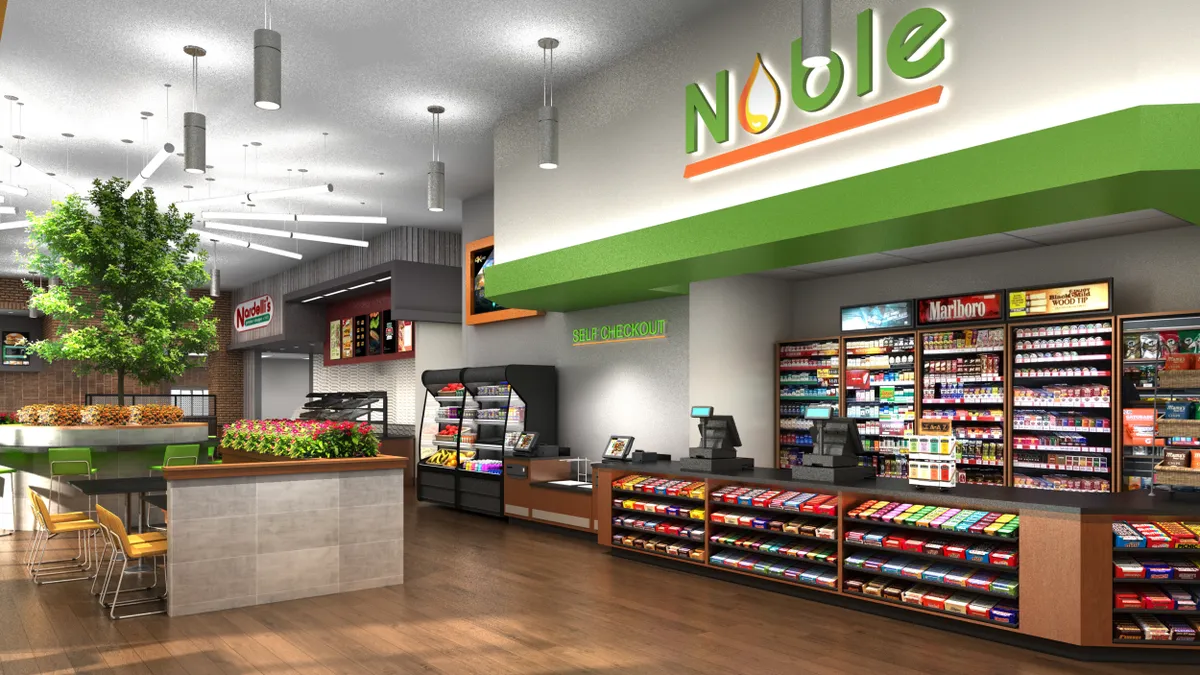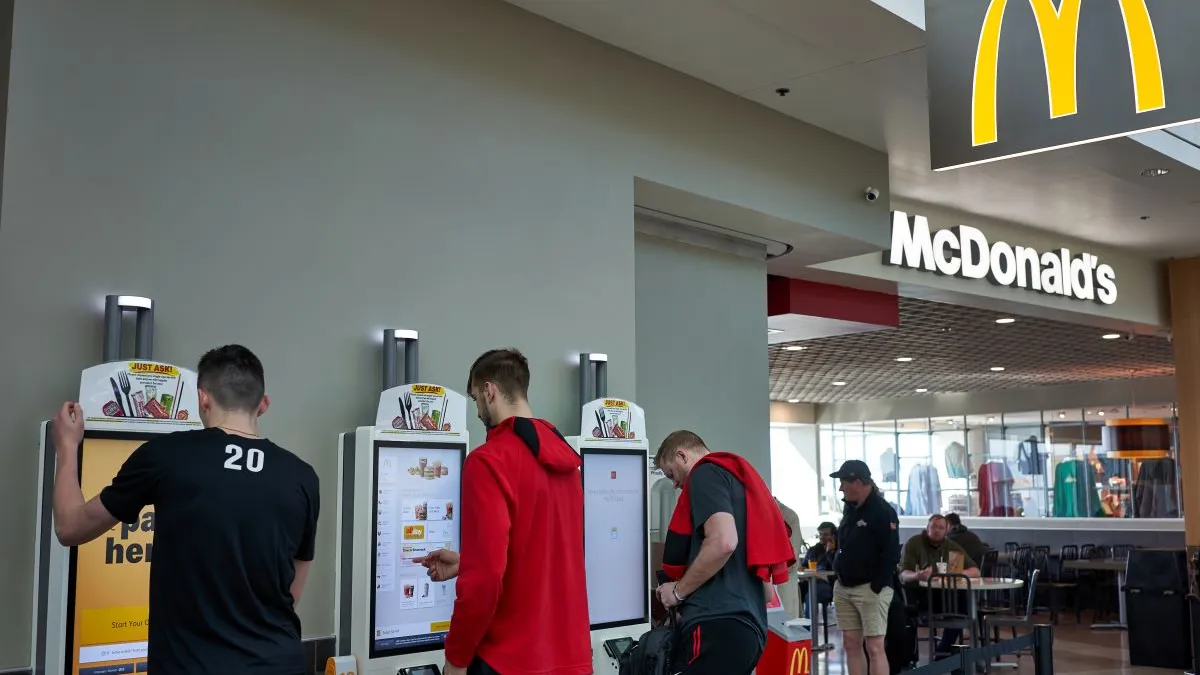Robert Thompson, an eatertainment mogul who’s been in the game for 25 years, is ready to take a swing at his first sports-centered offering: a 1940s-inspired pickleball experience.
Camp Pickle shares many of the defining characteristics of Thompson’s earlier concepts: sprawling space, gourmet eats, craft beverages and a sharp eye for trendy, Instagrammable design. But the new concept’s footprint, between 55,000 and 75,000 square feet, and its target audience dwarf the reach of predecessors like Buffalo Billiards, Punch Bowl Social and Jaguar Bolera.
“The facilities are larger than anything I’ve ever done before. Prior, the largest space I developed was 32,000 square feet.,” Thompson, founder of hospitality concept group Angevin & Co., said.
Each Camp Pickle location will have space for a mix of 10 to 14 indoor and outdoor courts, depending on market size, as well as additional attractions, Thompson said. Visitors are not required to order food to book court time, which costs between $20 and $40 per hour depending on the market.
“It's still always about using social activations, whatever they may be — bowling, karaoke rooms, pool tables — it's all about using that as a magnet to bring in and socially activate guests all around food and beverage and a design for experience,” he said.
Camp Pickle will debut in Huntsville, Alabama, in 2024, with a second location to follow in Denver. Thompson is also eyeing at least 13 other markets, including Nashville, Tennessee; Atlanta; Raleigh, North Carolina; Minneapolis; and Jacksonville, Florida. The eatertainment brand won’t be breaking ground on a new niche, however. Rival concepts Chicken N Pickle, Smash Park and Electric Pickle have been operating in the pickleball-eatertainment lane since 2016, 2018 and 2021, respectively.
Still, Thompson expects to scale quickly, targeting 10 openings by Q1 2026. Angevin & Co. will primarily seek out suburban markets to accommodate these locations, which require up to five acres of space if self-service parking is included, alongside outdoor facilities like fire pits, tent cabanas and space for large private parties.
“Pickleball appeals to 8-year-olds and 80-year-olds, families and singles, small groups and corporate events. Every walk of life is playing pickleball right now,” he said.
That pool of potential customers is slated to grow, too. Some experts project that 40 million people will be playing the sport by 2030, up from estimates that nearly 8 million are playing today.
“The rate of participation is expanding dramatically beyond the development of courts.”
Though Camp Pickle’s design is best suited for large real estate parcels, it can also be applied to new builds in urban markets, Thompson said, broadening its growth potential. The brand currently has a deal in the works for a downtown location on the rooftop of a six-story building, though Thompson didn’t disclose the location. That Camp Pickle outpost would also have space on the ground floor of the building so guests can take an elevator that accesses its facility directly. Thompson didn’t share the exact square footage of this outpost, but said no Camp Pickle iteration would be smaller than 40,000 square feet.
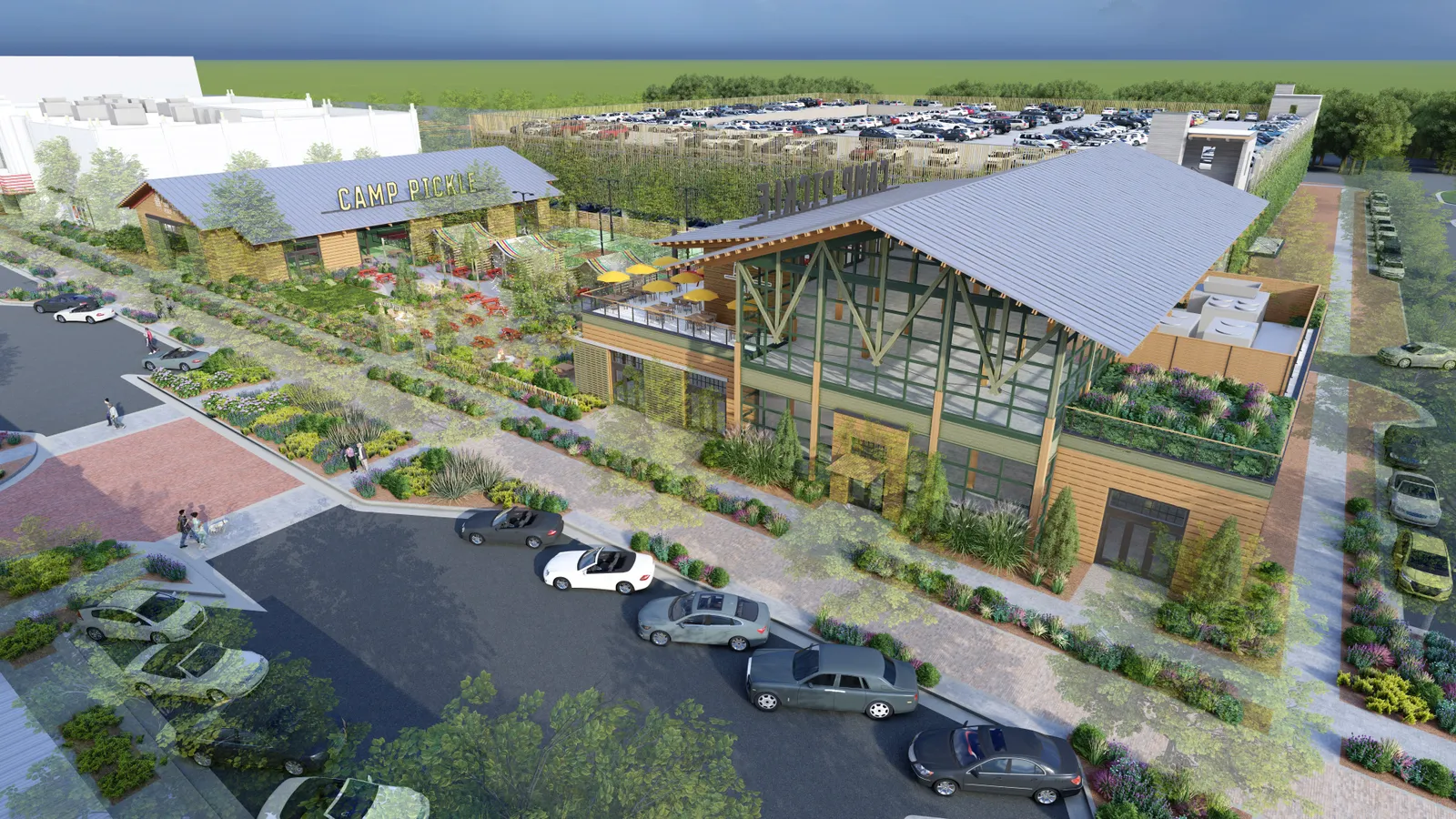
Smaller staffs yield culinary and franchising potential
Camp Pickle’s design forgoes the full-service model many eatertainment brands, including Thompson’s other concepts, rely on. Instead Thompson is rolling the dice on a counter-service model.
The popularity of food halls has already primed diners to be comfortable ordering high-quality food from a counter, so this model should be intuitive for customers, Thompson said. Camp Pickle guests on the court can order the full menu from servers, however.
Opting for a limited-service format will help avoid bottlenecks and stressful surge times at Camp Pickle, which will operate from 8 a.m. to midnight and service all three dayparts.
“[Eatertainment] gets these surge moments where customers come in 500 at a time and it really is impossible to seat them all effectively, to give them a high-level of customer experience, and give them their check and [let them pay] and out the door in a good way,” he said.
The counter-service format also saves on labor. Thompson’s smaller concepts required a staff of around 200, and he expects the Camp Pickle format won’t require more employees despite its larger capacity.
“I've been focusing a lot on labor and margin in the last few years. Obviously, we've been dealing with inflation,” he said. “Labor is a topic that has been a quizzical issue for many years as we continue to see wage inflation and wage increases. So I've been trying to pivot away from full-service dining experiences.”
Front-of-house labor savings will allow Camp Pickle to better flex its culinary muscles, Thompson said. The concept’s menu is anchored by Mexican and wood-fired items, as well as comfort food associated with a camp environment, he said. For breakfast, the brand expects to offer a smoothie bar and other light fare.
The comparative labor savings, combined with Camp Pickle’s potential appeal to the gamut of age groups and real estate market types, has allowed Thompson to try another first: franchising.
“There's such a demand in the marketplace to help these developers bring more pickleball to life that I became interested in sort of bolting on a franchise module into this growth plan,” he said. “We will build it for you and we will operate it for you and it will be yours — you will own every fiber of the location. You can just borrow our expertise and our brand.”
Camp Pickle is in multiple conversations with potential operators and Thompson is confident there will be more interest and formal talks now that the concept has been shared publicly.
“I can tell you that pent up enthusiasm for people to get out and travel and to have experiences earlier in 2022 was extraordinary. And I think that's going to continue and we're gonna feel it in eatertainment,” he said.



